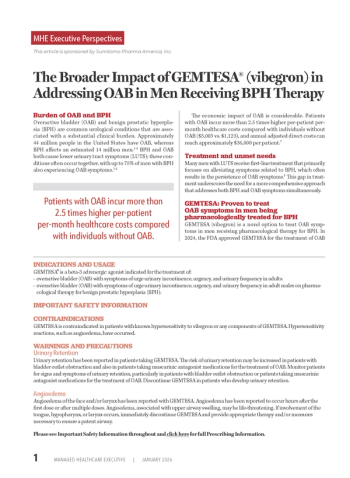
Thinking of “Carving Out” Specialty Benefits? Your Questions Answered
Payers know firsthand how much of their prescription drug spend is driven by specialty medications for complex, chronic conditions.
Not surprisingly, many payers are looking at ways to reduce their specialty medication spend. This has led to the emergence of vendors promoting approaches that claim to help payers significantly cut costs by “carving-out” specialty pharmacy services from integrated pharmacy benefits management.
But does this approach work? Or do the lofty promises cover up potential issues and offer artificially inflated savings estimates?
Here are few issues any payer should consider before they start separating out specialty pharmacy from the rest of the pharmacy benefit management:
What is the baseline from which cost reductions are calculated and are the estimates true, lasting savings?
Carve-out vendors take a blunt knife approach to utilization management, using aggressive tactics to deny medications to as many people as possible in an effort to lower costs. While this may appear to deliver savings in the short term, these savings tend not to last.
Why? Because the aggressive approach to utilization management often means that many people who are prescribed clinically appropriate treatments are denied access. Those types of denials are not durable and are likely to be overturned on appeal. This means the payer ultimately ends up paying for the medication anyway, and carve-out plans may actually add costs in the long term because they are paying for multiple vendors to administer their benefit. And it results in a terrible member experience for those who are kept from medication that they were appropriately prescribed.
Cost savings estimates may also be overstated because the carve-out specialty vendor is estimating promised savings on the assumption of no prior specialty management, which is not the case for almost any plan.
How does the aggressive management of a “carve-out” impact health outcomes?
Carving out components of specialty pharmacy risks jeopardizing member outcomes by fragmenting care to chase perceived cost savings. A majority of people who take specialty medications have complex, chronic condition. They need these treatments to effectively manage their condition. Doing so can prevent costly, long-term health complications. Denying or making it significantly harder for such members to obtain the medications they need could lead to a worsening of their condition and, ultimately, higher overall costs.
Can you lower specialty spend without aggressively limiting access?
The ideal approach to lowering cost — without jeopardizing patient outcomes or raising long-term costs for the plan — is appropriate utilization management to ensure effective cost control with decisions rooted in rigorous criteria and clinical treatment guidelines. CVS Health takes an integrated approach to specialty management that leverages clinically sound decision making, sophisticated data analytics and digital infrastructures, and interoperability. Together, they break down silos in health care – not only ensuring better outcomes but delivering lasting savings for payers.
For instance, many specialty treatments with multiple indications now have weight- and indication-based dosing recommendations from the FDA. By using electronic health records to verify an individual’s specific diagnosis and ensuring the chosen treatments and dose are the most clinically appropriate, it can help eliminate waste and reduce costs. This approach is also safer for patient. Digital tools such as secure messaging and symptom tracking also help engage people in their care and make sure that the treatment is working for them. As a result, payers don’t wind up paying for expensive medications that are not delivering clinical value.
Ultimately, healthcare is about making sure people have access to appropriate treatment options that help them stay healthy. The best way to ensure cost savings in a member-centric way that supports affordability and care is a coordinated approach, one that addresses inappropriate utilization management from the start and throughout therapy while using competition within each therapeutic area to lower unit cost.
Newsletter
Get the latest industry news, event updates, and more from Managed healthcare Executive.



















